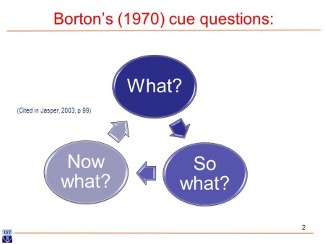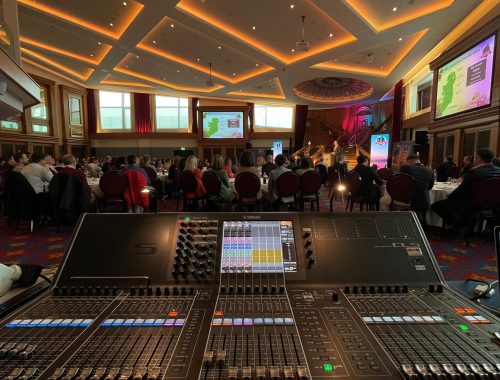A SERIES OF UNFORTUNATE EVENTS
So, a quick update before we begin. My original plans for placement became side-tracked as the hours I thought would be available did not arise. This in fact ties in with the theme of the blog unintentionally, having to deal with a challenging aspect of placement. There was simply just not enough work in the role helping out with Ulster Colleges and the broadcasting of their fixtures. I had to move fast to secure another job, that linked in adequately with the course. A role at Queen’s became available as Performance Sports Assistant. I have now been in the role for almost a month. That was a challenge I didn’t see coming. This blog post will highlight the use and benefits that I gained by using the three-step reflection model of Borton, when I applied it to a problem that surfaced whilst undertaking my duties in my new role.

What?
As part of my role as Performance Assistant, one of my weekly duties is to collect the entire summation of footage from the weekend games for the Queens Sport rugby, hockey and football teams. After editing and trimming the footage down to the highlights, I produce a 2–3-minute clip, which I then share across the relevant social media platforms, Instagram and Twitter.
At the beginning of last week, I collected the footage as I normally do. We have a strict deadline to have the footage out on a Tuesday night, as we begin to look ahead to next week’s fixtures on a Wednesday. As I began to edit the footage on Tuesday evening, the editing program started crashing on me, with my MacBook telling me it no longer supported the software. I started to panic.
I messaged my boss to try and gain a license to the Queens software which would support the footage. However, I was then notified he was on leave as his mother had passed. This was the first time in my new role that I had felt isolated and helpless. One of the key elements to broadcasting on social media is the swift relay of information. The longer people wait to see content, the less they care. My boss was already going through a heart-breaking ordeal, I didn’t need to add to his misery.
What did I do about it?
Initially I just sat there, panicking. Trying to figure out in my head a way around this. Time was getting on, it was nearly 9pm now. And then I remembered. Our university building had MacBooks that would support the program I needed to use to edit the footage. The security guards would be locking up the building soon, and I live an hour’s drive away from Belfast. I got in the car and made it just before 10pm, just in time to reach security who were about to lock the building. I finally got in and the highlight package made up for 12 midnight, and then called for the security man to come back to lock up. I also managed to post the highlights onto the social platforms. Once I finally got home and into bed, a huge sense of relief came rushing through me.

I think when an event like this occurs, it would be very easy to just solely blame it on bad luck, my MacBook failed me in a time of need, and this is something that I maybe should have made a contingency plan for (given that it is an old MacBook). In Reflection: Turning Experience into Learning Dewey considers that reflection involves an integration of attitudes and skills in methods of inquiry; that neither attitudes nor skills alone will suffice (Zeichner 1982). Being diligent and prepared are attitudes that would’ve helped me here, regardless of my skill of being able to produce the highlight package. That is the most valuable lesson that I learned from the experience.
What Now?
“At this point one must consider the consequences of possible alternative strategies for action” (Jasper,100), is the advice that Borton suggests via his reflective model. Having the university building as my backup in the case that this happens again isn’t enough, I need an alternative strategy if the building does be locked. Looking into buying a new MacBook could be the easiest but most expensive option. Another alternative strategy could be to attempt to obtain the footage earlier from the coaches, so that the reparation period is longer. Should a technical issue such as this present itself again, I would have more time to find a solution.
Lastly, I have also accepted the idea that sometimes a situation can be out of your control, and not everything can be resolved immediately. Understanding where and when these situations arise is something, I believe will come to me.
BIBLIOGRAPHY
Jaspar, Melanie. Beginning Reflective Practice. Cengage Learning. 2013. Ebook
Boud, David et al. Reflection. Taylor & Francis Ltd, 2015.


